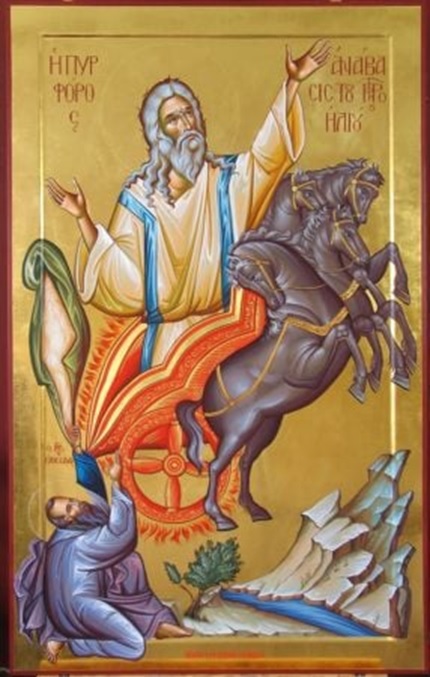The Prophet Elijah and the Priests of Baal: Truth versus Falsehood
20 July 2023From time to time, the people of Israel were subjected to influences from neighboring nations and incorporated pagan elements into their worship. Israelite worship was not only enriched with a host of foreign elements of ritual, but these features often acquired a permanent place in the rubrics, altering the faith and the worship of the true God.
Prophet Elijah strove with might and main for the purification of the worship of God. He fought against idolatry and endeavored to cleanse the moral life of Israel and to support faith in the true God. The prophet believed that the person responsible for the country’s woes was King Ahab, who had abandoned the Lord and worshipped the local pagan deity, Baal, whose cult had been introduced by Ahab’s wife Jezebel.

Jezebel had persecuted and put to death many of God’s prophets, and very few had escaped her manic wrath. Elijah stood alone against 450 false prophets of Baal whom he had challenged to a contest between their god and the God of Israel. Whichever god sent fire and burnt the whole offering would be the one, true god.
The false prophets prepared the whole burnt offering and began invoking the name of Baal in order for him to send fire down onto the altar to burn their sacrifice. They began to pray to Baal and engaged in a lengthy rite, but nothing happened. There was no sign that their prayers had been heeded by Baal. But no sooner had Elijah called upon the name of God than the fire of the Lord came down and burnt up the whole offering. The God of Elijah was proved to be the true God and the false prophets of Baal were vanquished.
Naturally, the false god, Baal, was also unable to end the drought which was causing hardship in the land. The God of Israel, on the other hand, confirmed his universal authority and provided those who believed in him with the necessities of life. The Lord sent rain and ended the drought, which had lasted three years. Faced with this miracle which God had performed through the faith of the prophet, the people confessed their faith in the God of Israel. This was the moment when the people returned form the delusion of idolatry and came back to the truth of the one and only God.
After this miracle, Elijah ordered the slaughter of the false prophets. At this point, the narrative acquires special hermeneutical and theological interest, since many well- and ill-intentioned people raise the point that the Law says ‘You shall not murder’, so how is it that the prophet orders: ‘Let none of them survive’. Is it possible for the prophet, a man of God, to be a transgressor against the Law? In this case, however, the prophet isn’t breaking the Law, but, in fact, is upholding it. According to the Law, ‘I am your God who brought you out of the land of Egypt, out of the house of slavery; you shall have no gods other than me’ (Ex. 20, 2-3). And in the cult of Baal, we have worship of another god. According to Deuteronomy, any such infraction is dealt with by the Law: ‘that troublemakers have arisen among you and have led the people of their town astray, saying, “Let us go and worship other gods” (gods you have not known), then you must inquire, probe and investigate it thoroughly. And if it is true and it has been proved that this detestable thing has been done among you, you must certainly put to the sword all who live in that town. You shall solemnly curse it and all things in it’ (Deut. 13, 13-15).






